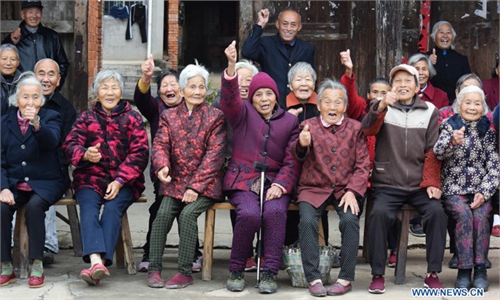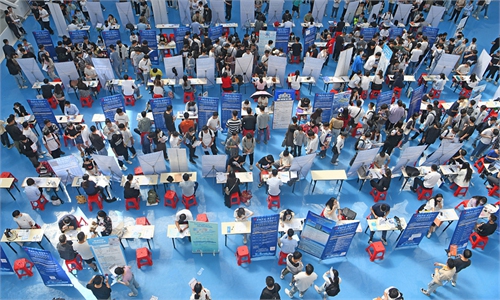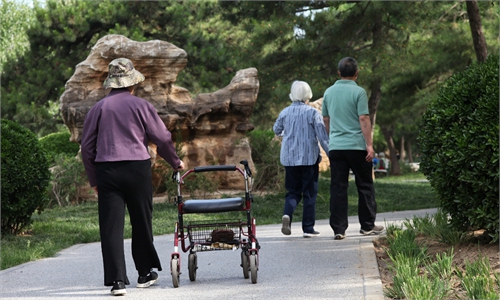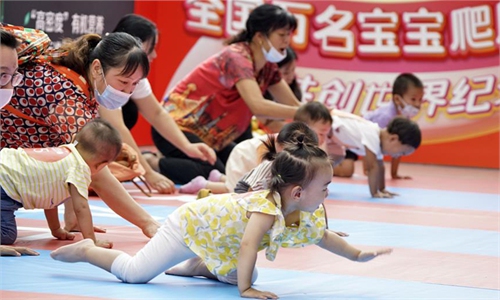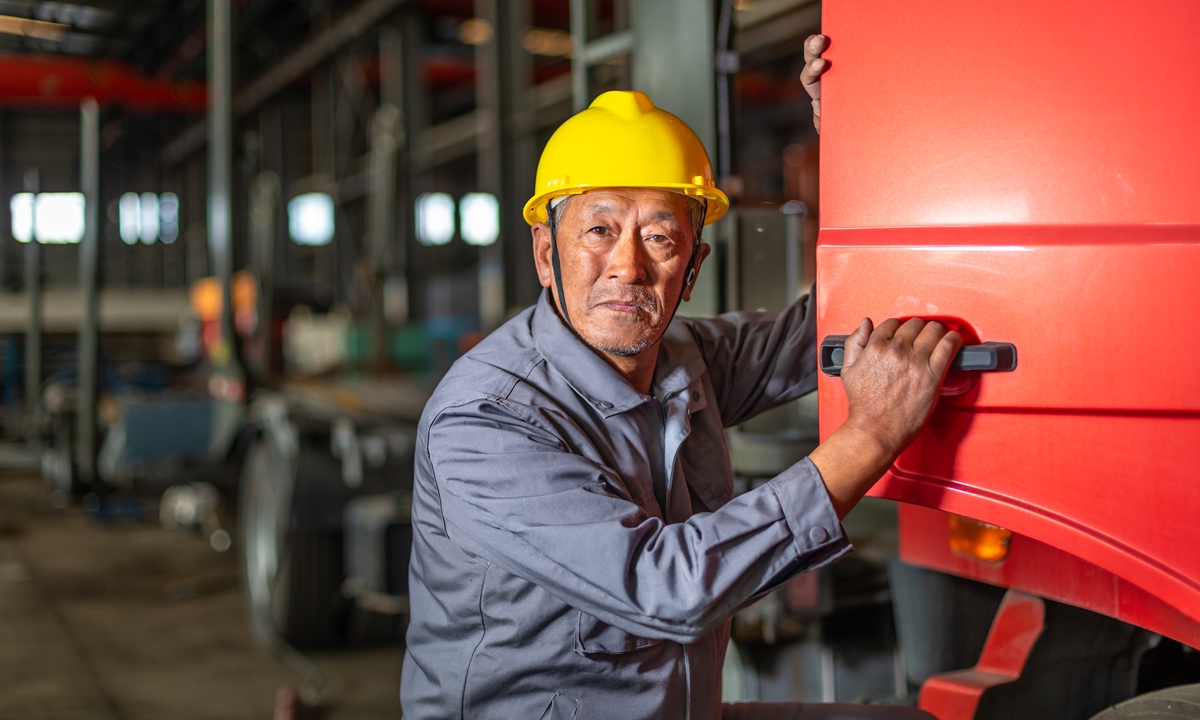
Photo: VCG
A latest report shows that 68 percent of surveyed senior citizens in China intend to return to the workplace after retirement while 30 percent of the interviewees say they have economic pressure. Experts said it's a normal and beneficial phenomenon given the slow growth of pension in recent years and labor shortages in some industries.The survey report on the post-retirement employment of senior citizens released by Chinese recruitment website 51job.com on Monday reveals that 34.4 percent of elderly job-hunters want to subsidize their family expenditures through reemployment, or increase their family income to meet higher consumption demands.
The report also shows that 46.7 percent of the elderly return to the workplace in an attempt to realize their personal and social values, and another 19 percent hope to continue pursuing career development.
In terms of the major expenditures of their income from reemployment, the top three major expenditures include daily living expenditures, reservation for pensions and sharing the economic burdens of their children with the respective proportions amount to 37.7 percent, 21.3 percent and 18.3 percent.
Besides, tourism and other consumptions on entertainment and medical expenses also account for 8.3 percent and 5.3 percent of the expenditure of their reemployment income.
The survey also found that the elderly choose jobs mainly based on their past career experience and their work skills. For those with professional skills, jobs such as accountants and technical consultants, which account for 16.3 percent, and positions in the training industry such as calligraphy teachers and photographers, which account for 9 percent, are among the top choices.
Whereas job-hunters with less education but with patience and care are more likely to work in the labor-intensity industries such as the service and logistics industries, accounting for 41 percent and 20 percent respectively, such as cleaning workers, sanitation workers and cooks.
It is beneficial to both the elderly and society that they would like to and are qualified to work after retirement since the average Chinese life expectancy has increased and many aged people still stay in good health when they're retired, Zhou Haiwang, deputy director of the Institute of Population and Development under the Shanghai Academy of Social Sciences, told the Global Times on Wednesday.
According to Zhou, reemployment after retirement gives the elderly a chance to realize some of their dreams while getting more income to improve their life quality. It also helps in solving the problem of labor shortage in some industries.
Statistics show that the Chinese elderly population aged 60 or above amounted to 267 million as of the end of 2021, accounting for 18.9 percent of China's total population. China is expected to have a severe aging society around 2035 with the elderly population exceeding 400 million -- over 30 percent of the total population.
The report to the 20th CPC National Congress on Sunday said China will pursue a proactive national strategy in response to population aging.
As of the end of 2021, a total of 1.03 billion people have joined the basic endowment insurance, and China has raised the minimum standard of basic pension for urban residents four times since 2012 with the pension for urban and rural residents nationwide reaching 179 yuan ($24.86) per capita per month by 2021.
Zhou said it's a normal phenomenon for the Chinese elderly to return to the labor market due to the relatively slow growth of pension in recent years. Compared with their income before retirement, their pension isn't enough and this constitutes financial burdens to some.
In terms of children's attitudes toward parents' reemployment after retirement, 35.7 percent of the surveyed children support their parents to return to the workplace, 25.3 percent of them do not want their parents to get tired out by work anymore after retirement, and 24.7 percent feel distressed for their parents to have to return to work.
It is noteworthy that 7.3 percent think that retired people get reemployed actually take jobs away from young people to some extent.
Such divided attitudes were also reflected from the heated discussions on social media. While some internet users on China's Twitter-like Sina Weibo are concerned about growing youth unemployment, worrying that elderly job-hunters in the job market will make the situation worse, others point out that many elderly job-hunters are obliged to return to workplace due to economic burdens.
Since the elderly may be willing to do the work that young people are unwilling to, Zhou thought the two groups of people didn't compete but were complementary to each other in the job market.
"In fact, the total population of working-age in China has been decreasing every year over the past decade, but our economy is constantly developing and growing, so the demand for labor force in many areas is still increasing, thus recruitment for some positions has already come across some difficulties," Zhou said.
Zhu Haoning contributed to this story
